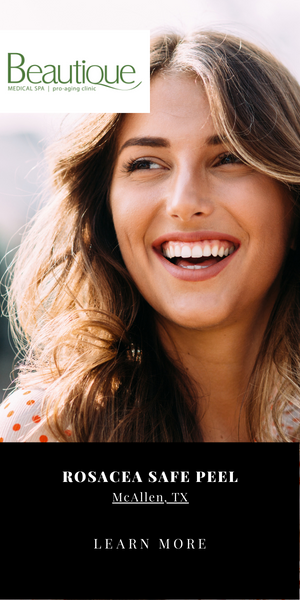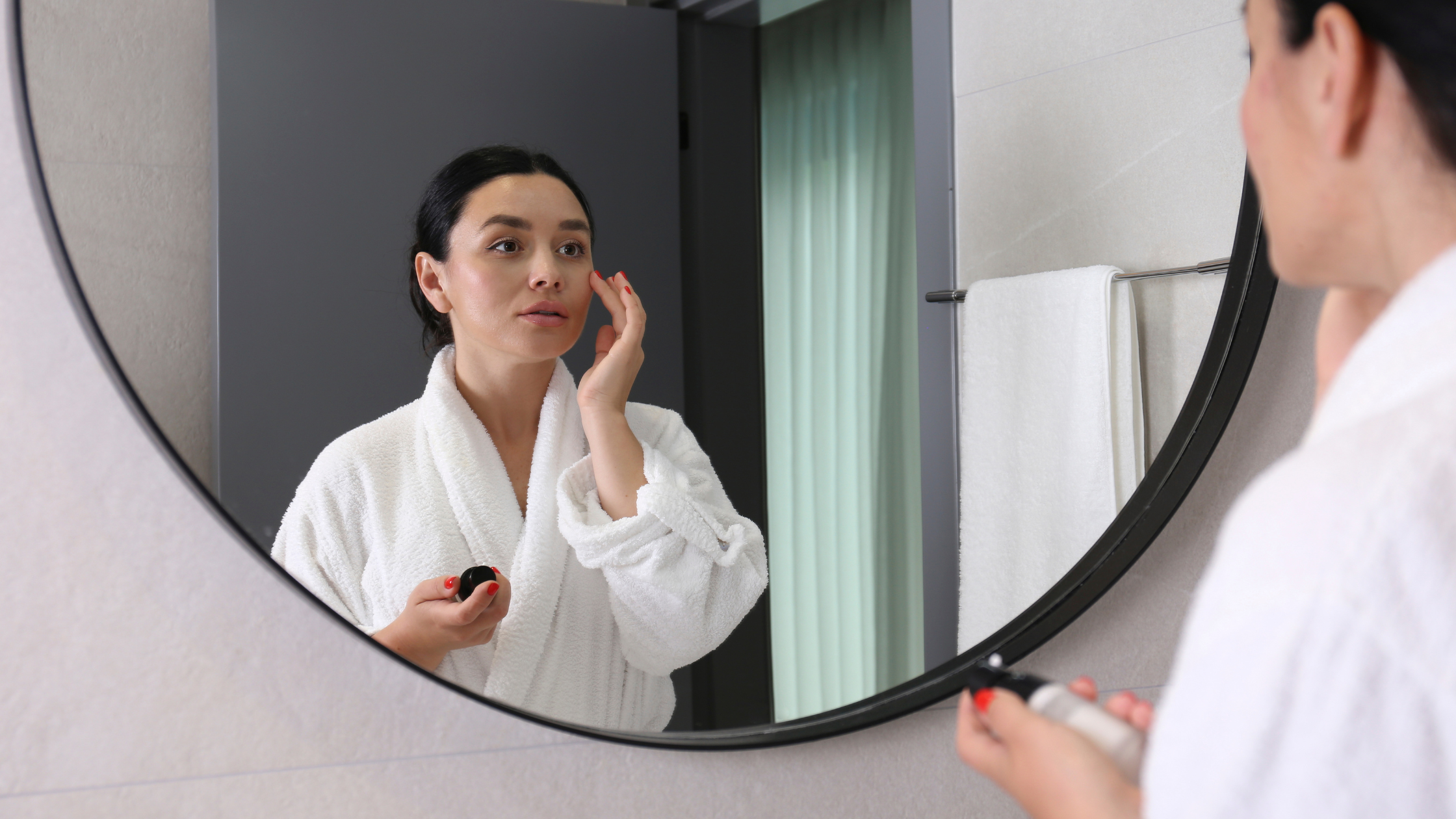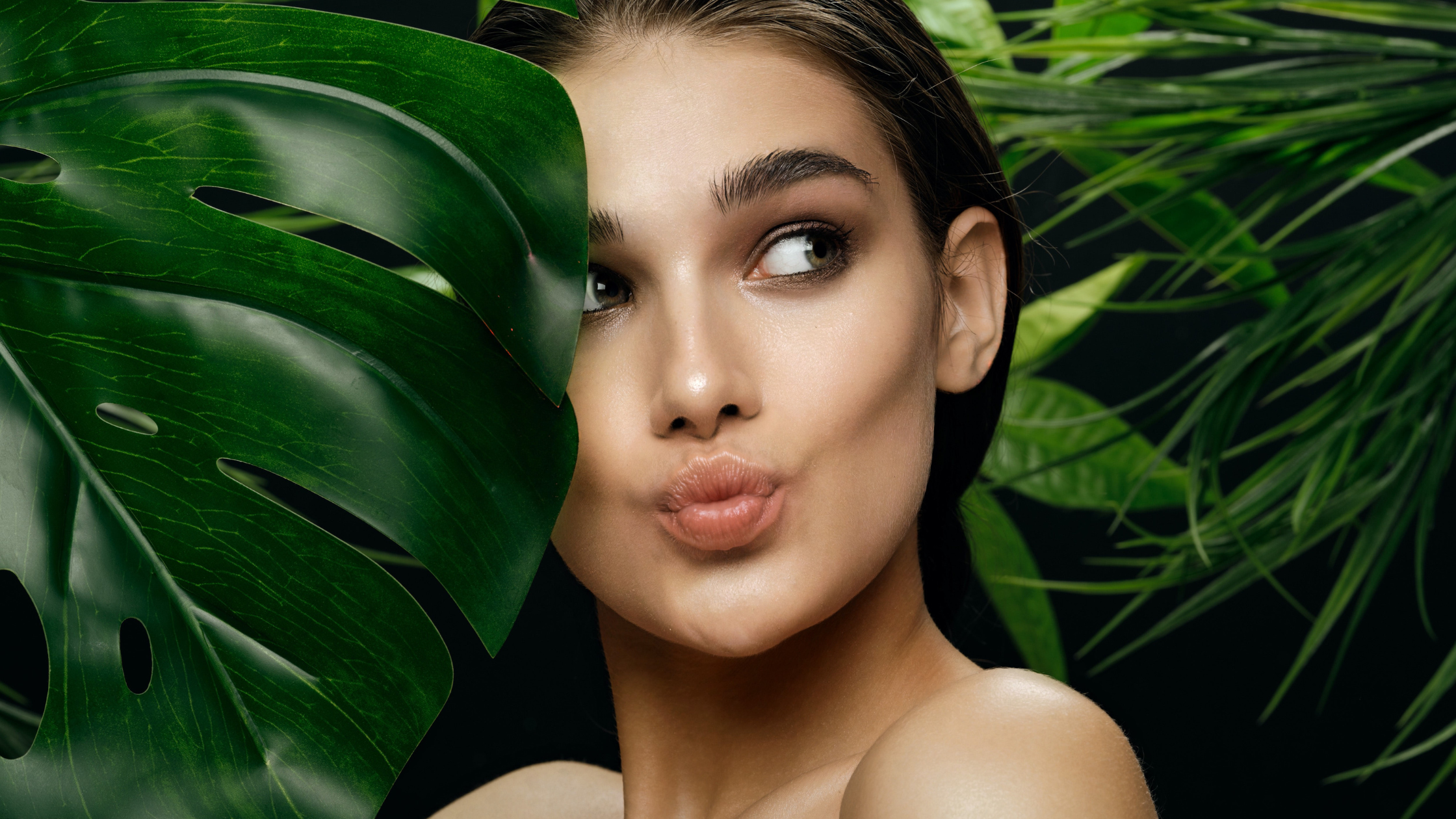What Exactly Is Rosacea and How to Manage it
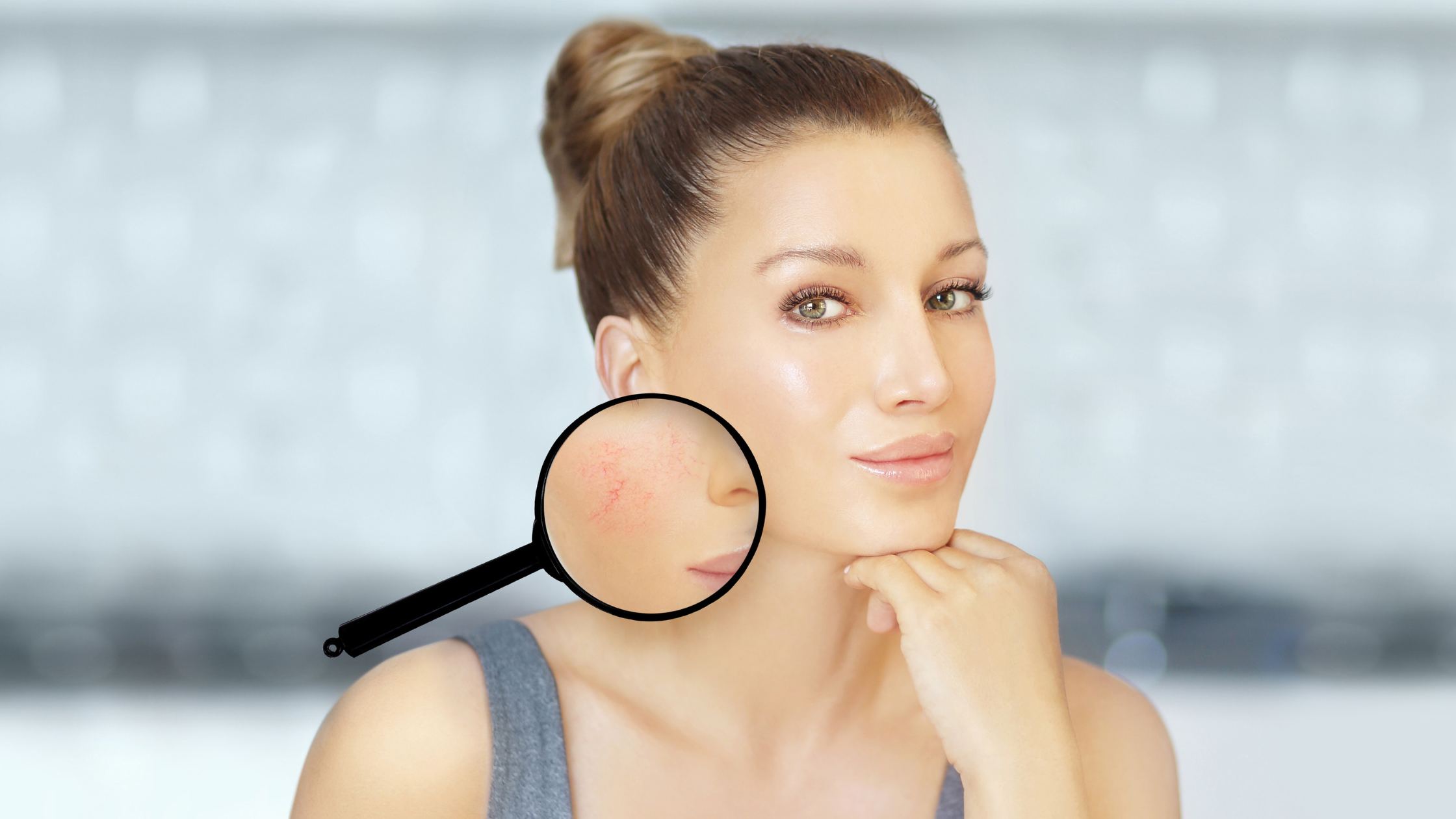
Do you experience frequent facial flushing, redness or bumps on your skin? If so, you may be suffering from rosacea. Rosacea is a common condition that can affect anyone of any age, but it occurs most commonly in adults aged 30-50. It is important to be aware of the symptoms and diagnosis of this condition to ensure that you are getting the proper treatment and care.
It’s no secret that we preach the importance of getting regular pro-aging treatments and using quality skincare at home, there are some conditions that require a little more hand holding than others, and rosacea is one of those conditions. The good news is that if you have rosacea you can still have radiant, healthy skin, you just need to have someone by your side making sure that you are helping to build up your skin and not make this frustrating condition worse.
But it’s not just about treating existing conditions – our team also emphasizes preventative care to maintain healthy looking skin for life. So why wait? Schedule an appointment today with our team of skin care specialists and start on your journey towards radiant, glowing skin!
So let’s take a look at what exactly is rosacea, what causes it, and how to deal with it. Dr. Sanchez and his team answer all your questions!
What is Rosacea?
Rosacea is a common inflammatory skin condition that affects millions of men and women worldwide. The primary symptoms of this chronic skin condition are redness and flushing on the face. Particularly on the nose and cheeks, small, red, puss-filled bumps (pustules) to form on the affected areas, swelling, as well as visible blood vessels on the skin’s surface.
Although it can occur at any age, it typically begins in middle-aged individuals. And is more prevalent in women than men. The exact cause of rosacea is not yet known. But is believed to be a combination of genetic and environmental factors. but we have identified several factors that may contribute to its flare-ups.
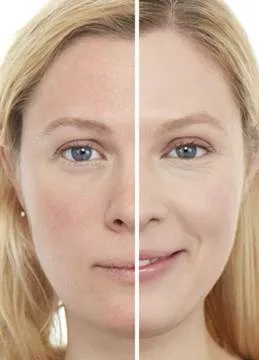
The symptoms of rosacea can vary from person to person, but they often include:
- Facial redness, particularly on the cheeks, nose, forehead, and chin
- Small red bumps or pustules on the face
- Swollen or thickened skin on the nose
- Eye irritation, such as dryness, itching, and burning
Rosacea is a chronic condition, which means that it tends to persist over time. However, there are treatments available that can help manage the symptoms. Such as topical creams, oral antibiotics, laser therapy, and lifestyle changes. It’s important to consult with a dermatologist if you think you may have rosacea. As early treatment can help prevent the condition from worsening.
What Causes Rosacea?
As of now researchers have yet to find the actual cause of rosacea. But we have found certain factors that may trigger it such as:
Genetic Factors – Some researchers believe that genetics may play a role in the development of this condition. People with a family history of rosacea are more likely to develop it themselves than those without such a history.
Overactive Immune System – When the body’s immune system mistakenly attacks healthy cells in the skin, it can result in inflammation and other symptoms associated with rosacea.
Environmental – Environmental triggers such as sun exposure, extreme temperatures, and wind can all lead to a flare-up in rosacea symptoms.
UV radiation from sunlight damages the skin’s blood vessels and can trigger inflammation in individuals with rosacea. Exposure to cold weather or hot temperatures can also cause blood vessels in the face to dilate and increase blood flow. This leads to redness and flushing. Similarly, windy conditions can result in dry, irritated skin that may exacerbate rosacea symptoms.
In addition to external environmental factors, internal ones such as stress levels and diet may also play a role in triggering or worsening rosacea symptoms.
Triggers to Avoid
Rosacea is like that one friend who always shows up uninvited and overstays their welcome. It’s a skin condition that loves to make a grand entrance, usually in the form of redness, pimples, and visible blood vessels on your face. But fear not! While you can’t cure rosacea (sorry), you can definitely keep it at bay by avoiding certain triggers.
First things first, avoid spicy foods if you don’t want your face to turn into a tomato. Spicy food lovers, I know this one hurts but think about it this way- do you really want to trade in your love for hot sauce with a face that looks like it just ran a marathon? Trust me, bland is the new black when it comes to rosacea.
Other triggers include, exercise, sun exposure, extreme temperatures, cheese, coffee, drugs that dilate blood vessels, and some cosmetic, skin or hair care products.
4 Types of Rosacea
Did you know that there are four different types of rosacea? Let’s take a closer look at each type and learn how to identify them.
The first type of rosacea is Erythematotelangiectatic Rosacea (ETR). This type is the most common and characterized by persistent redness in the central portion of the face. The affected area may also have visible blood vessels (or commonly referred to as spider veins) and flushing episodes.
The second type of rosacea is Papulopustular Rosacea (PPR). You’ll notice red bumps, pustules (pus-filled spots), and reddening of the skin. A lot of times it may seem like acne but it is not because this condition is not caused by the production of excess oil on the skin. Patients often complain about burning and a stinging sensation.
Phymatous Rosacea is diagnosed when there is thickening of the skin on the face. The most common symptom of type 3 is the thickening of the skin on the nose.
The last and fourth type of rosacea is Ocular Rosacea. Different from the rest because it affects the eyes. You may feel dryness, constant watering, visibly red and irritated, and experience blurred vision. It’s even possible to develop inflammation or cysts on the eyelids.
Clinically-proven Successes in Treating Rosacea
Although there is no cure to rosacea, treatment can help control the symptoms and reduce flare-ups. That’s where our Beautique Medical Spa skin experts come in! We can help you prevent rosacea from worsening.
First thing’s first, it is important to avoid your triggers as much as possible. This may mean you are aware of the cosmetics that are no good for you. You may possibly need to switch to a more gentler water-based make-up. You are limiting your sun exposure and applying sun protection everyday – I promise that you will hear all of our Beautique staff reiterating that one!
After avoiding as many of your triggers as possible, topical treatments may be prescribed. Most of these topical creams and gels are used as the first treatment and for most it is enough to keep the flare-ups and symptoms at bay. They work to lower skin inflammation, causing blood vessels to narrow, kill bacteria on the skin, hydrate and moisturize the skin.
Some important ingredients to look for in your topical treatments include ceramides, hyaluronic acid, niacinamide, azelaic acid, and sodium sulfur. Overall, these all work together to improve your overall skin health.
In some cases, you may be prescribed antibiotics in combination with your topical treatments. Please keep in mind that the severity of your rosacea will be assessed by one of skin care experts in order to see if this is needed. Antibiotics can help reduce redness and pustules (pus-filled spots). Usually, this treatment is needed for severe cases.
And last but not least, laser treatment. We offer Intense Pulse Light (IPL) treatment that has been proven to treat spider veins. These are the small linear blood vessels that many develop mostly around the nose, as seen in the image below. Multiple sessions may be needed.
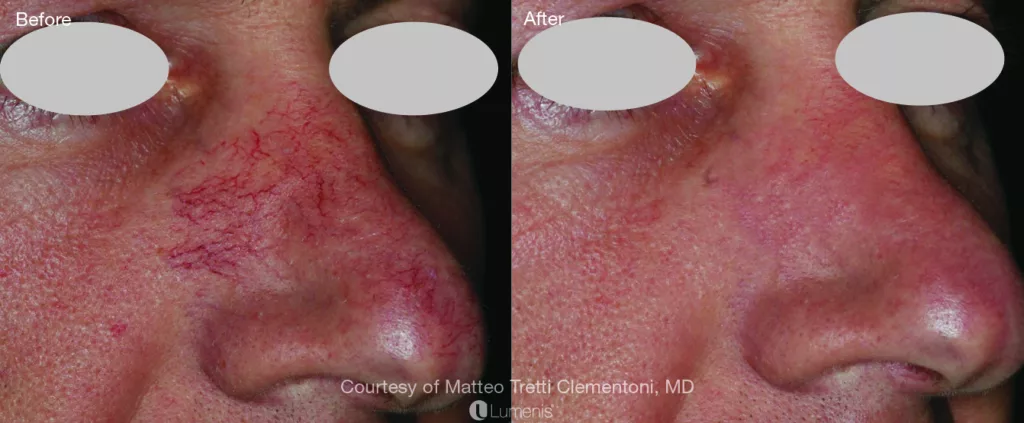
Treat Rosacea with a Visit to Our McAllen Skin Experts
Luckily, for you we have our very own specialized skin care team in the Rio Grande Valley area. And we’re ready to help. Our team is composed of estheticians and our aesthetic physician, Dr. Sanchez, who have years of experience and ongoing training to ensure they stay up-to-date on the latest techniques and technologies in the industry.
Beautique Medical Spa’s professionals provide a personalized treatment plan tailored specifically to your unique skin type and condition. Whether you’re struggling with acne, fine lines, hyperpigmentation, or as we mentioned, rosacea, we have the knowledge to help improve your skin’s appearance.
The National Rosacea Society (NRS) recognizes the month of April as Rosacea Awareness Month. To educate everyone on the impact of this chronic skin condition. We know rosacea can have a profound effect on your confidence and wellbeing. But finding the right skin specialists can help you take control of your skin. At our medical spa in McAllen, TX, our experienced skin experts are dedicated to providing excellent treatments tailored to your individual needs.
With our support, you can find the best treatment option and start feeling more confident in your own skin. Take the first step towards treating rosacea today and schedule a get-to-know-you consultation with us. So, don’t put off conquering rosacea another day; book your appointment now! To schedule a consultation please call or text at (956) 664 -1234.
"*" indicates required fields
 (956) 664-1234
(956) 664-1234



